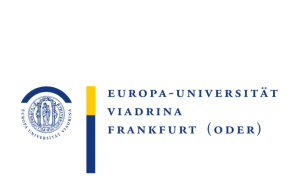ZUR DEUTSCHEN SEITE
The events will take place with simultaneous translation into English and German.
Each plenary session/forum will be lead by a panel of experts. The plenary sessions are primarily intended to give a first overview over interesting developments and perspectives on the respective section topics; they should offer information and thoughts that can be deepened in the subsequent session workshops.
The time frame for each workshop will be 60 minutes in order to give the conference participants the chance to encounter two topics during the afternoon. The workshops are meant to deepen thoughts, discussions and perspectives on the section topics in smaller groups – and provide for experience exchange/sharing. Depending on the workshop team and participants, the workshops will be held in English and/or German.
Sector 1: Regulating Mediation
Forum 1: “Regulation … the systemic death of mediation as we know/love it?”
The panel will
- provide insights in different national legal mechanisms and cultures
- explore the paradoxical interplay between the well-meaning attempt of providing a solid foundation for the sustainable establishment of professional mediation by creating mediation law and procedurally linking mediation with court proceedings on one side – and the impression that the unique potential of mediation is being endangered or even “digested” by the legal/judicial system on the other side
Workshop: “mediation is mediation is mediation …? – national mediation laws in (critical) comparison”
WITH TRANSLATION
The workshop team members will
- briefly describe approaches of mediation regulation in their countries, including the explicit and implicit goals/aspirations of this regulation
- present selected examples of particularly interesting regulatory details
- discuss controversial topics (e.g. the legitimacy of mandatory mediation, different approaches of quality insurance etc.) with workshop participants
Workshop: “Working with the law – and keeping the promise of mediation”
GERMAN
The workshop team members will
- raise awareness of the relationship between „lifeworld“ and „legal system“ in practical mediation – and discuss how mediators can balance contradictions that arise from there
- identify opposing aspects in concrete cases and collect ideas for coping with them
- demonstrate and experiment with examples for interventions how mediators can use communicative and legal aspects in order to maintain lifeworld´s “promise of mediation”
Sector 2: Online Conflict Resolution
 Forum 2: “Mediation moves in the digital world – glimpses into the future”
Forum 2: “Mediation moves in the digital world – glimpses into the future”
The panel will
- introduce classic approaches of Online Dispute Resolution – and mediators’ scepticism towards virtuality
- discuss new needs for new forms of conflict management (systems) instilled by platform economy
- show new possibilities of procedural design by digitalization
Workshop: „What research do mediation and ODR need?“
ENGLISH
Brief presentations of the Nordic Mediation Research, ADR Section of Dispute Resolution Task Force and the Research Group on Mediation.
Discussion about research that is needed, fears and hopes regarding such research and international connectivity between the researcher.
Sector 3: The Impact of Mediation Training
 Forum 3: “Mediation Training – personal and political impact“
Forum 3: “Mediation Training – personal and political impact“
The panel will
- lay the conceptual foundation for the following contributions from the perspective of cultural sciences
- discuss the findings of an empirical study on the effects and impact of master programs in mediation on the professional and personal lives of graduates
- introduce and assess different approaches of bringing about societal change by mediation training in different countries
Workshop: “The impact of mediation training on personal and professional development”
ENGLISH
Not all people who go through mediation training work as mediators later on. However, most describe their mediation training as a powerful booster of personal, sometimes also professional development. How does this happen – and what do people do with their learnings from mediation education? This workshop invites an open exchange on personal experiences during and after mediation training.
Workshop: “The impact of mediation training on political opinion and activity”
WITH TRANSLATION
Mediators are defined as “neutrals”; therefore, mediation may appear to be apolitical on first sight. However, many concepts/styles of mediation rest on fundamental values which can be regarded as deeply political. Moreover, the transparent clarification and acknowledgement of personal and group interests can lead to new societal awareness and involvement. This workshop hopes to inspire a discussion on the political implications and potential consequences of understanding mediation not only as a conflict resolution service/method but also as a set of values.
Sector 4: The Role of Conflict Culture in New Work Environments
 Forum 4: “Mediation moves organizational (conflict) culture“
Forum 4: “Mediation moves organizational (conflict) culture“
The panel will
- show the interconnection between mediation and organizational development
- discuss the specific potential and risks of the New Work movement regarding individual autonomy and (interpersonal as well as intrapersonal) conflicts
- introduce the concept of “Reinventing Organizations” (Laloux) and the specific potential of mediation for this approach
Workshop: “Using mediation as motor for organizational development?”
ENGLISH
This workshop will explore the following questions: When are conflicts within an organization merely “personal matters” – and when indicators (and potential catalysts) for needed systemic development? What can mediators do when organizational structures or suboptimal leadership “produce” conflict? How can parties and/or mediators use feedback to foster “learning organizations”? And where/when is such learning not welcome? …
Workshop: “New Work, Laloux and Mediation – Decision-Making beyond Consensus”
GERMAN
Mediation is a consensus based process; New Work contexts, however, are often self-organized and follow decision-making processes that are neither based on hierarchy nor consensus. This workshop will explore how mediation can adapt to and support self-organization.
Workshop: „New working world & people torn between self-optimization and exhaustion?“
GERMAN
The new world of work as one of the consequences of geo-political, technological and social changes influences not only the organisations, but also the people who work in them. What influences are there and how can mediative approaches and mediators absorb them? Let’s look at this together in this workshop.
Sector 5: Mediators move (Workshops only)
 Workshop: EmBODY-INg CONFLICT TRANSFORMATION
Workshop: EmBODY-INg CONFLICT TRANSFORMATION
GERMAN & ENGLISH
We as mediators are our main tool – with what we know, sense, radiate, and do. This workshop invites you to focus on the physical level of a mediator’s presence and work – and explore basic principles of improvisation.
Workshop: Mediation moves outdoor
GERMAN
Why not take mediation outside? Nature has a deep impact on humans – and therefore can support the mediation process immensely. This workshop invites you to directly experience and explore conflict resolution approaches in interaction with nature.
Sector 6: Mediation moves into society (Workshops only)
Workshop: “ Mediation moves into society, society grows into mediation – insights into two grassroots mediation projects”
GERMAN
In this workshop we present and discuss the implementation of an innovative peer mediation project at the Protestant high school Cottbus that goes beyond mere training and aims at integrating mediation into the schools culture and curriculum. And we look into „ZoffOff“, a non for profit community mediation project in Kreuzberg, a quite diverse, multi-ethnic quarter of Berlin.
Sector 7: Mediation merges (Workshops only)
 Workshop: „Mixed modes or hybrid processes“
Workshop: „Mixed modes or hybrid processes“
ENGLISH
There is a trend by many ADR providers to add a new service which has to do with different combinations of adjudicatory processes like arbitration and non-adjudicatory processes like mediation. There is a multitude of scenarios which involved mixed mode or combined processes which will be presented as a background to the discussion. We will discuss the different dilemmas associated with this development with emphasis on changing hats (e.g. medarb or arbmed or medloa).



